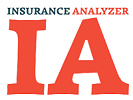IFRS 4 is an International Finance Reporting Standard (IFRS) that is issued by the International Accounting Standards Board (IASB). It provides guidance for the accounting insurance contracts. But the comprehensive project on insurance contracts is underway meaning that this is not the last one.
The board advertised IFRS 4 since it saw an urgent need for better disclosure for insurance contracts, and some improvements to some measurements and recognition practices, in time for the adoption IFRS was listed by firms all over the globe.
Scope
IFRS 4 applies to almost every insurance contracts (for instance reinsurance contracts) that an entity offers to reinsurance contracts that it has. IFRS 4.2 doesn’t apply to other liabilities and assets of an insurer, like financial assets as well as financial liabilities within the scope of the IAS 39 Financial Instruments: Recognition and Measurement. IFRS 4.3 does not address accounting by policyholders.
In the year 2005, the IASB changed the scope of the IAS 39 to encompass financial guarantee on contracts issued. However, if an insurer of financial guarantee contracts has prior asserted explicitly that it regards these contracts and has utilized accounting applicable to the insurance contracts, the issuer can elect to implement either IAS 39 or IFRS 4 to the mentioned financial guarantee Contracts.
Definition of Insurance Contract
This is a contract under which a party (the issuer) accepts significant insurance risk from the other party (the policyholder) by approving to reimburse the policyholder in case of a specified (the insured event) uncertain future event unfavorably affects the policyholder.
Accounting Policies
The IFRS 4 exempts (until the completion of Phase II of the insurance project) from some requirements of other IFRSs, involving the requirement to consider IAS 8 Accounting Policies, Change in Accounting Estimates and Errors in achieving Accounting policies for insurance contracts. The IFRS 4.14:
- Prohibits necessities for possible claims in contract that aren’t in existence of the reporting date (for instance catastrophe as well as equalization provisions)
- Requires an insurer to secure insurance liabilities in its balance sheet until they are canceled or discharged, or expire and forbids offsetting insurance liabilities against linked reinsurance assets as well as income or expenses for any reinsurance contracts against the income or expense from the related insurance contract.
- It requires for the adequacy of recognized insurance liabilities and impairment tests for the reinsurance assets.
Change in Accounting Policies
The IFRS 4 enables the insurer to change its accounting policies for insurance contracts only when its financial statements present data that is more relevant and no less reliable as well as no less relevant. The IFRS 4.22 particularly dictate that insurer cannot introduce any of the following activities, although it may continue to utilize accounting policies involve in them.
- Utilizing non-uniform accounting policies for the insurance liabilities of subsidiaries
- Measuring liabilities on an undiscounted basis.
- Measuring votive rights to forthcoming asset management charges at an amount that surpasses their fair value as implied by an evaluation with the present market- based fees for the same services.
Remeasuring Insurance Liabilities
The IFRS 4 allows the introduction of an accounting policy that entails remeasuring designated insurance liabilities consistently in each period to indicate present market interest rates. Without this permission, the insurer would have been required to apply the change in accounting policies consistently to all the same liabilities.
Prudence
An insurer is required not to change its accounting policies for any insurance agreements to eliminate excessive prudence. However, in case an insurer now measures its insurance contract with adequate prudence, it should not present additional prudence.
Future Investment Margins
There exists a reputable presumption that an insurer’s financial statements will become less reliable and relevant in case it introduces an accounting policy that reflects future investments margins in the measurement margins in the measurement of the insurance contracts.
Asset classification
When an insurer opts to change its accounting policies for liabilities, it may reclassify all or some financial assets at fair value through loss or profit.
Since 1997 to September 2014, the IASB has been conducting improvements on the project ranging from splitting it into two phases, formulating solutions to help when dealing with policyholders for their rights under insurance contracts among other things.





